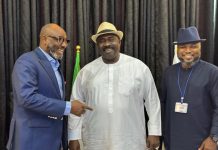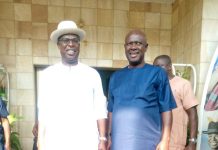From March 12th to 23rd 2018, thousands of women from every corner of the globe, braved the blizzards and cold in New York to be part of big decisions about rights of women and girls in rural areas. For two weeks, representatives of United Nations Member States, civil society organisations and United Nations agencies partook in the 62nd Session of the Commission on the Status of Women (CSW) at United Nations Headquarters, with the priority theme: “Challenges and opportunities in achieving gender equality and the empowerment of rural women and girls’.
CSW is a Commission of Economic and Social Council (ECOSOC) established in 1946 and dedicated to the promotion of gender equality and empowerment of women and girls. While progress are discussed, gaps are highlighted in the implementation of the 1995 Beijing Platform For Action( BPFA) as well as emerging issues that affects gender equality and empowerment of women and girls all over the globe . It is the largest gathering of all UN Member State and other stakeholders that is focused on the promotion of gender equality and the empowerment of women.
The principal output of CSW is the Agreed Conclusion on the priority theme set for the year. The Agreed Conclusion contains an analysis of the priority theme and provide concrete recommendations for governments, intergovernmental bodies and other institutions, relevant stakeholders civil society actors to be implemented at the international, regional and, national and local levels.
For 62 years, CSW has contributed to huge progress for women; it is where conventions and guidelines used today to protect the political, social and economic rights of women were passed, like the United Nations Convention on the Elimination of all forms of Discrimination of Against Women (CEDAW). Though, it is a huge fight to get things passed with some developing countries coming up with retrogressive languages to push back gains made on gender equality and women’s human rights issues.
Women’s rights organisations and networks, both at home and abroad, play key role in ensuring that the priorities of women on the ground are taken into account. But despite the importance of reflecting real women’s circumstances in the decisions that come out of CSW, women’s rights organisations and other CSOs are not allowed to be involved in the formal negotiations of the “agreed conclusions” purely reserved for governments. This is why women need to show up and be as vocal about the key issues that affect their lives.
My participation at CSW62 was made possible by Women Thrive Alliance, an international network working to Achieve Sustainable Development Goal (SDG5) on gender equality ad women empowerment and to raise grassroots women’s voices in decision making spaces with the campaign tagged ‘ #InTheRoom’.
2018 CSW from day one March 12th was a beehive of activities. Defying the freezing March weather, women from all continents start their participation with registration for ground pass. This no easy process with thousands of women standing on long queues without the pass none can assess the UN Building. This first week called high level segment begins with ministers of women affairs in attendance and statements delivered by delegates of member states in general discussions. Side events comprising panels and discussion as well as trainings on advocacies by NGO/CSW/NY took place daily from UN Building, to Church, Salvation Army and Armenian Centres, 4West 34 Street to diverse hotels and embassies in Manhattan. Women jostled to arrive events on time despite the distances from each event. Daily morning briefs took place for CSOs by members of the bureau, UN Women as well as in regional caucuses on key announcements and negotiations to follow upon with government delegates
From one event to another the discussion centred on similar challenges of women and girls in rural areas. From Africa, to Asia to South and North America, to Europe and the Pacific’s, the myriads of challenges are directly linked to gender inequalities and structural barriers, resulting in women’s unequal access to power and resources. Limited access to quality social services, infrastructure, energy and more. These structural barriers, denies women and girls the full enjoyment of human rights and often inadequately or insufficiently addressed in laws, policies, budgets, investments, and interventions at all levels. These barriers are compounded when women are excluded from leadership and decision making leading to underrepresentation in governance and diminished voices of women.
Other challenges for women living in rural areas include sexual and gender-based violence, high prevalence of maternal mortality, HIV and AIDs, child marriage, FGM, conflict and climate change. It is no longer news that women rights defenders, feminists and grassroots advocates are under attack from shrinking civic spaces of lack of funds, patriarchy, repressive laws, criminalisation, triviality, brutality, arrests, unlawful detention and death.
Governments and those who wish to maintain the status- quo of gender inequality tries to push women backwards but for the participation of women at CSW who have to be there to hold the line of discussion, moving forward on decisions (that matter to their lives, peace, health, reproduction, education, finance, employment, security and visibility )to be agreed upon.
My participation as well as that of other women provided an opportunity to influence policy that impacts on me and women of my community. I was able to share my experience as a grassroots feminists protecting and promoting the rights of women and girls in rural areas as well as learn from others and the priority issues in their countries and continents.
Women go to CSW to influence, change and reform the laws and policies around the world to achieve gender equality; women defy the March cold annually to get in front of Governments and funders of the world to ensure accountability on their political and financial commitment to women’s rights. Women go to this international space to build global alliances between activists, organisations, and feminists.
Women should not be left behind by visa rejection nor poverty, but rather women irrespective of age, marital status, education, class and religion should encouraged and funded to be at this global space like Women Thrive Alliance does; bringing grassroots women and advocates to have their say and tell their own story and create change.
Louisa Eikhomun is the Executive Director of Echoes of Women in Africa
Email: Echoesofwomeninafrica11@gmail.com



























